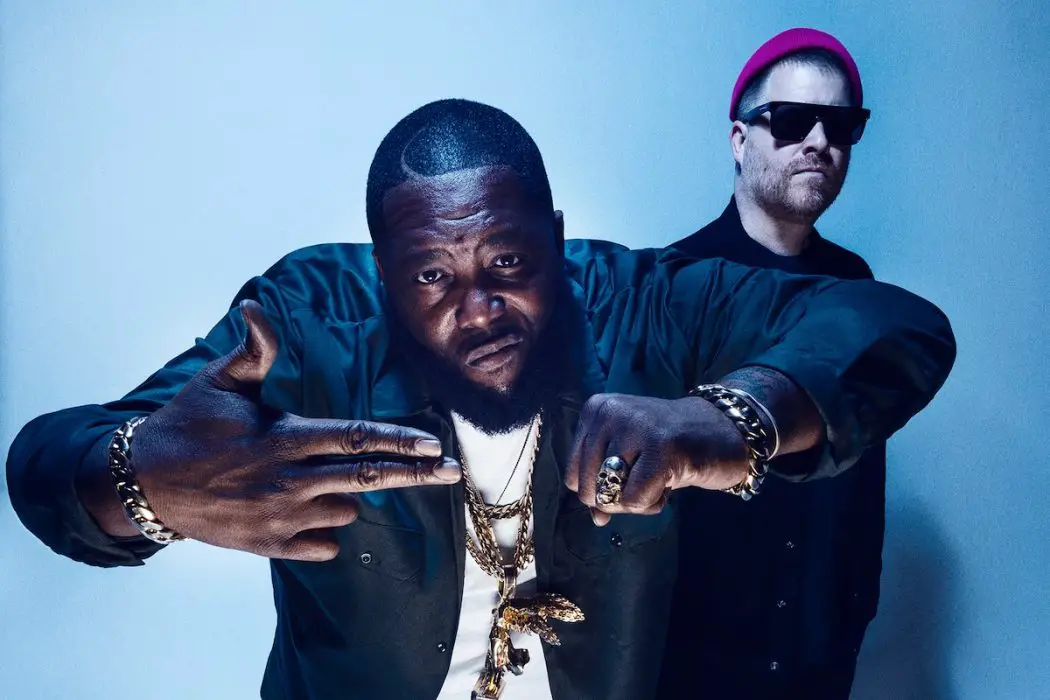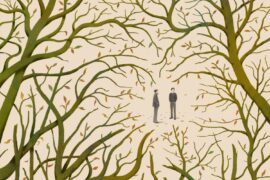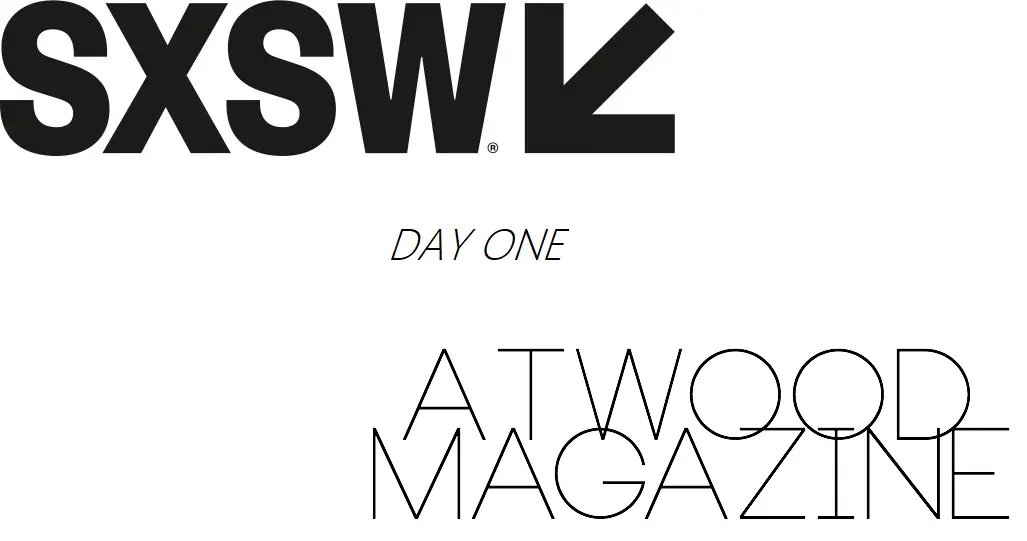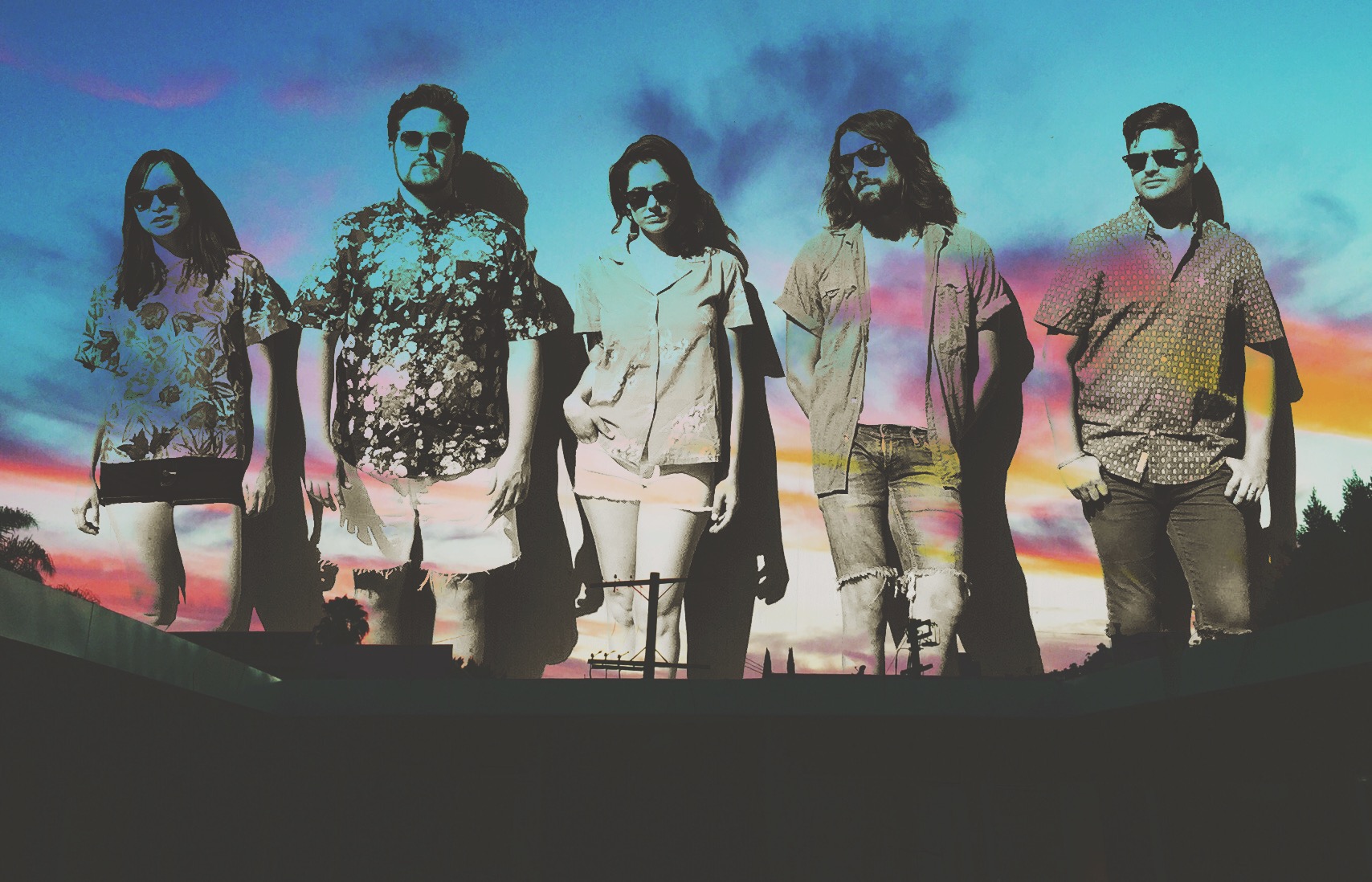Atwood Magazine’s writers discuss ‘RTJ4′, Run the Jewels’ loudest album yet – elevating their continued activism, reflective and emboldening conversations, and unprecedented sounds.
Featured here are Atwood writers Josh Weiner, Urooj Rizvi, Danny Vagnoni, and James Crowley.

— —
Was this your first time listening to Run the Jewels or are you an older fan? What do you make of their latest project?
Josh: Back in 2015, one of my fellow hip-hop enthusiasts named Evan informed me of an act I should check out called Run the Jewels. I had previously been unaware of RTJ, but I knew about Killer Mike mainly from his collaborations with OutKast, especially “The Whole World.” So I figured it was worth giving them a listen. Heck, they’d even released their albums as free downloads, so I had nothing to lose.
I quickly learned that Evan’s recommendation was a sound one and that RTJ was an act to admire. I’ve continued to listen to the duo’s subsequent releases and was excited to see them return with a timely fourth LP. Once again, the rapping and production here are ferocious, and there’s plenty about this acclaimed duo to admire.
James: I’ve been an RTJ fan since Run the Jewels 2. I was a little hesitant with this album, because I thought that it was going to be their worst album yet. I wasn’t totally sold on the early singles, but I’m glad I gave it more time, because this album might be their best?
Urooj: I’ve heard some RTJ songs here and there but I hadn’t given them a proper listen until stumbling into RTJ4’s early release as I read up on the wide-spread protests against police brutality in the United States. Friends had mentioned RTJ often in conversations about progressive hip-hop but my exposure before this album was incredibly limited.
However — I listened to RTJ4 from start to end without pausing, without taking a beat and I feel like its nervous, almost-feverish energy stayed with me for a while after. Given that my knowledge of RTJ came from random Spotify artist radio line-ups and the Booksmart trailer, RTJ4 is my ‘real’ introduction to the duo and their fantastic creative dynamic. RTJ4 is already, easily one of my favourite albums for this year, simply because in so many ways it is rooted in a sharp, unflinching critique of the racist, oppressive American status-quo.
Danny: I’m an early fan. I was familiar with Killer Mike’s earlier work, specifically R.A.P Music, which I discovered through the song “Reagan” at the recommendation of a friend. That album was Run the Jewels’ genesis, and I found RTJ before a drive to Allentown on a crisp winter day. It with RTJ2 ultimately became the soundtrack of my later college years.
RTJ4 represents the most precise project from the duo yet. On first listen, I didn’t quite enjoy it as much as the frenzied RTJ2 or the expansive RTJ3. Maybe that’s still true, though it has rapidly made up ground. On relistening countless times and reading through the verses, RTJ4 is one of the essential albums of the moment, at times a ferocious manifesto and at others a razor sharp indictment of an America stagnating in a culture of narcissistic sadism.
Which song stands out to you on RTJ4, and why?
Josh: All of the songs here are good. For a couple reasons, I was especially moved by the closing track, “A Few Words for the Firing Squad (Radiation).” On a fundamental nature, the theme of protesting state violence against citizens couldn’t be more timely. Several lyrics in particular stand out for me in their ability to be both confrontational and altruistic– particularly when Killer Mike dedicates the track to “the do-gooders that the no-gooders used and then abused, [to] the truth tellers tied to the whippin’ post, left beaten, battered, bruised.”
Also, ever since writing a school paper called To Jazz Up A Butterfly in 2018, I’ve kept an ear out for songs that demonstrate the revived creative partnership between hip-hop and jazz. The soulful saxophone laced into this final track, courtesy of Brooklyn musician Cochemea Gastelum, really made my heart leap. Keep it up, RTJ!
James: Like Josh said, there wasn’t a bad song on this album. The three standouts were “walking in the snow”, “goonies vs. E.T.”, and “a few words for the firing squad.” The two things RTJ do really well are anger-inciting political songs and braggadocious, energetic songs: “snow” and “firing squad” are the best examples of the former and “goonies vs. E.T.” is the second. “Walking in the snow” and “firing squad” hit especially hard given the current political climate. No line on the album hits as hard as Killer Mike’s verse closer: “Never forget in the story of Jesus, the hero was killed by the state.”
Even though “goonies vs. E.T.” has political lines, it hits different and feels like RTJ taking a victory lap. After the success of their previous three albums and an anticipated opening for Rage Against the Machine, the duo reminding everyone that they “ain’t nothing to fuck with,” seems like a line the two would drop with a massive smile.
Urooj: This is a very difficult choice to make but the very first song that comes immediately to mind is “a few words for the firing squad (radiation)”. I don’t think I’ve heard as powerful an ending to a record as this one in a very long time. On the very basic level, there’s such a sheer range of sonic textures on this track that it is made unforgettable — from the drumming to the saxophone to the electronic twist at the end. By virtue of this layering and its adrenaline-pumping pace, “a few words for the firing squad (radiation)” is part rallying-cry, part soul-bearing soliloquy, part sonic experiment; all of which make for a unique listening experience. Following this would be the very catchy “ooh la la” – which is really hard to get out of your head once you’ve listened to it – and the pulsing rush of a song “never look back” bursting with aggressive self-assurance. Passing mention to “holy calamafuck” which features Cutty Ranks, also to be found on another sprawling 2020 album: The 1975’s Notes.
Danny: Every track has its moments and frankly it feels wrong to exclude “a few words for the firing squad (radiation),” but as my colleagues have already noted its strengths, the apotheosis of RTJ4 has to be the middle two tracks, “walking in the snow” and “JU$T.”
Mike and El’s verses on “walking in the snow” showcase the best aspects of their songwriting, able to effortlessly leap between contrasting notions of pain, anger, mockery, and bravado in the span of about four minutes. Mike’s verse in particular brings some heavy hitters, from his elegiac rasp of “I can’t breath” to his defiant “I’m readin’ Chomsky, I read Bukowski, I’m layin’ low for a week,” evoking clandestine rebellion.
“JU$T” and its massive cast of features steadily escalates, with Mike’s opening verse lingering, staccato, laying just behind the beat as if delivered from a leisure chair. Zack’s concluding verse may be one of his career’s finest, utilizing complex three over two rhythms and solid imagery, like his call back to Toussaint L’Ouverture.
Which is a stand-out lyric on the album for you and why?
James: I already compiled a list of a bunch of favorites, but the two best were El-P’s “Reality sucks dick, how’s that for wisdom?” in “holy calamafuck” and Killer Mike’s closer: “Go hard, last words to the firing squad was, ‘fuck you too,’” in “a few words for the firing squad.”
El’s line is great just as a plainspoken, honest reflection on how so many of us feel. It helps that it’s funny, but I’ve found myself responding that life just sucks when people ask how things are going now, and El just said it. Mike’s feels like a real kiss off, and while the world feels like its going to hell in a handbasket, a final middle finger is always welcome.
Josh: I’ll go with the opening lyrics of “JU$T,” in which all four vocalists involved chant “Look at all those slave masters posin’ all your dollar.” Here in DC, we don’t just have to look at slave masters on our money– we see towering memorials to them all over the city, a complicated reality I’ve long had to deal with as a native Washingtonian. So, that line definitely resonated for me– as did the preceding lyrics, which (as I realized with a little help from Genius.com) address the efforts of the oppressed to overcome discriminatory systems that have historically worked to their disadvantage.
Urooj: Another difficult question but I think for me, easily much of the lyrics of “JU$T”, “a few words for the firing squad (radiation)” and “walking in the snow” qualify here, given the sheer incision with which they have been penned and delivered, packing punches, refusing to hold back. There’s unforgettable and accusatory refrain of “Look at all these slave masters posin’ on yo’ dollars” that runs through “JU$T” to “The X on the map where the pain keep hitting / Just us ducks here sitting / Where murderous chokehold cops still earnin’ a livin’” in EI-P’s verse on the same song. There’s the “This is for the do-gooders that the no-gooders used and then abused / For the truth tellers tied to the whippin’ post / Left beaten, battered, bruised /For the ones whose body hung from a tree like a piece of strange fruit” on “firing squad” that carries such force and pain, referencing Nina Simone’s Strange Fruit in a nod to centuries of racist violence and abuse. And of course, the sharp, hard-hitting lyrics of Killer Mike’s verse where he refers to Eric Garner’s murder, to a failing education system, to the prevalence of apathy, all of which speak to the current political moment and the long history behind it.
Danny: It’s difficult to isolate as there are so many lyrics on the album that whip ass. On “goonies vs. E.T.,” El’s “Fuck y’all got, another planet on stash?/Far from the fact of the flames of our trash?/That is not snow, it is ash, and you gotta know/The past got a wrath, it’s a lover gone mad” is so good it inspires envy in someone who regards themselves as “decent to good” at writing. One of the few tender moments on the album, El’s opening verse on “a few words for the firing squad (radiation),” is also one of the most fantastic, “I woke up early once again, that’s four days straight/I didn’t wake you, baby, I just watched you lay/In the radiation of the city sun/I am in love with you, it is my only grace (Woo).”
Needless to say, though I have already done so, Mike’s entire verse on “walking in the snow” is one of the album’s defining moments, with its poignant landscape portrayal of a heartless America brutalizing the poorest and darkest skinned. While the album does have its share of nihilism – even possibly referencing Nietzche on a song – Mike’s lines on “goonies vs. E.T.” shows the duo’s defiance, “We accept the role of the villains ’cause we been villainized/Stomped to the dirt of the Earth, we still will arise” one of several literary references Mike makes, this one to Maya Angelou.

What impact do you think this album has in the current sociopolitical climate of the U.S.A, given the Black Lives Matter protests and more?
Josh: Run the Jewels’ previous work has addressed the Black Lives Matter movement, and given the new life that movement has experienced recently, it’s great to see that they can continue to serve as the soundtrack of the times. Just as there is plenty of music that continues to define the Civil Rights era of the 1960’s, acts like RTJ and Kendrick Lamar are likely to be remembered as musicians who spoke to the #BLM era of the early 21st century.
James: I completely agree with Josh. What really ends up weighing more with this RTJ album is the fact that it was written long before the current moment we’ve been seeing in the Black Lives Matter movement. Mike’s line “And you so numb, you watch the cops choke out a man like me/Until my voice goes from a shriek to whisper, ‘I can’t breathe,’” in “walking in the snow” was written long before George Floyd’s death, and it’s infuriating that a line like that is still relevant. A song like “JU$T” became more than just a politically-charged song because of its release time. Now these songs feel more like battle cries rather than just political anthems that will encourage angry kids to maybe look into their local politics.
Unfortunately, it seems silly and pointless to talk just about the music at a time like this. The real things to do to enact change are vote, donate, support black artists, and speak out. The charitable efforts by RTJ with the album’s release were great, and it’s refreshing to see so many artists follow suit.
Urooj: There’s been a surge in the production of ‘protest music’ since the murder of George Floyd which is both overwhelmingly powerful to witness and consume, in a sense and which naturally draws from the long history of black arts and protest in the United States. RTJ4 falls squarely within these parameters of empowering rage and history, and as both Josh and James have pointed out RTJ’s earlier work has also dealt with issues of race and violence — and the prescience of this record is almost disconcerting. It confirms, as do the on-going protests, that there is much work to be done when it comes to bigotry and anti-blackness in America. What’s been interesting, for me personally, furthermore is how the current black lives matter movement and emerging music has resonated globally. In India for example, several people have called for a reckoning with India’s own notorious history/examples of racism and Indian hip-hop artists like Seedhe Maut have been raising awareness about the history of black music and what it means to adapt/use hip-hop for the Indian context.
Danny: It’s difficult and perhaps a bit of navel gazing to discuss the impact of cultural media on a cohesive political project, but one useful lens is the production of a counter-narrative. US media, at some point, learned how to report justice movements to preserve their interests – ignoring them or demonizing them, depending, and has a particular interest in preserving their relationship with law enforcement.
Music like RTJ4 can serve as a cultural touchstone for a multiracial coalition. While it’s self-evident that Mike and El make police brutality a major focus on the album, global warming, massive wealth inequality, and fascism all get the bullet in Mike and El’s worldview. If nothing else, the fact that RTJ4 was in production for the better part of Trump’s administration is a reflection of a society that has many sins to atone for, and our moment can be another great step towards that.
In what ways does the chemistry between Killer Mike and El-P come into play on RTJ4?
James: I actually feel this album has each rapper allowing the other their own space to man the spotlight, and the two don’t play off each other nearly as much. Of course there are little flourishes, but I feel like this album will really come to life when it’s performed in concert.
Josh: Not sure how specific I can get, but I will say that bringing together two rappers of different regions, ethnicities, and styles really helps make the resulting music and its message far-reaching and all-inclusive. In other words, if such different guys can agree on the same political message, then it must be pretty valid.
Urooj: Since this is the first time I’m really listening to both of them, I have very little to say about their chemistry except that it really works for me and it’s a very powerful, creative dynamic that the two of them have going on.
Danny: I talked about this a bit in my full review, but Mike and El’s chemistry as a duo that rap, produce, and perform together reaches new heights with RTJ4. I agree with my colleagues that the two don’t trade verses quite as much on this album, their rapport and coordination feels tighter than ever. Take the parallel structure of their verses from “walking in the snow,” which both end with a reference to Jesus and his bastardized position in the American imagination.
What I did miss where some of the narratively conceptual songs, like “Early,” where El raps as though he’s overhearing the events Mike describes in his opening verse, and “Don’t Get Captured”/”Thieves.” On “Captured” El raps as though he’s a racist cop, with Mike addressing the ghosts of his victims on the subsequent song, “Thieves (Screamed the Ghost).”
— —
:: stream/purchase RTJ4 here ::
Stream: ‘RTJ4’ – Run the Jewels
— — — —

Connect to Run the Jewels on
Facebook, Twitter, Instagram
Discover new music on Atwood Magazine
? © Run the Jewels
:: Run the Jewels ::








